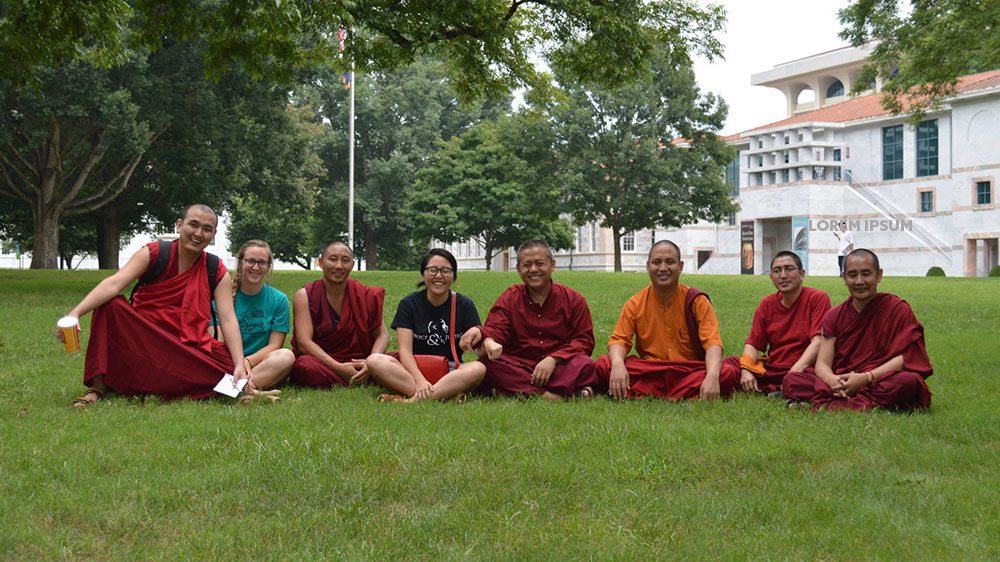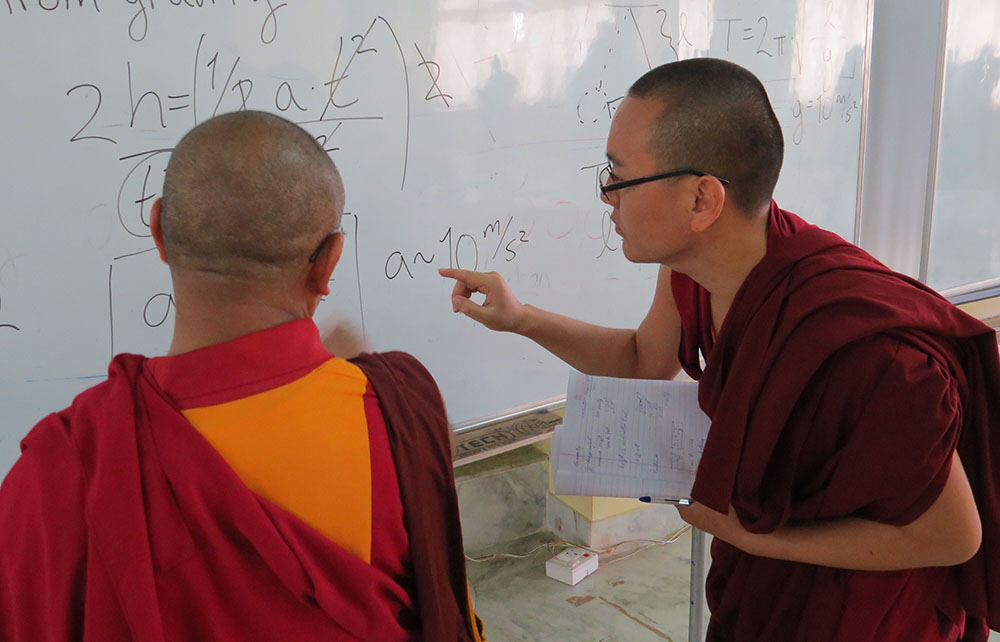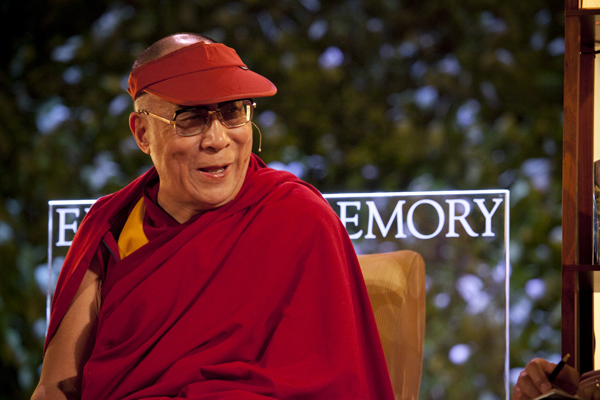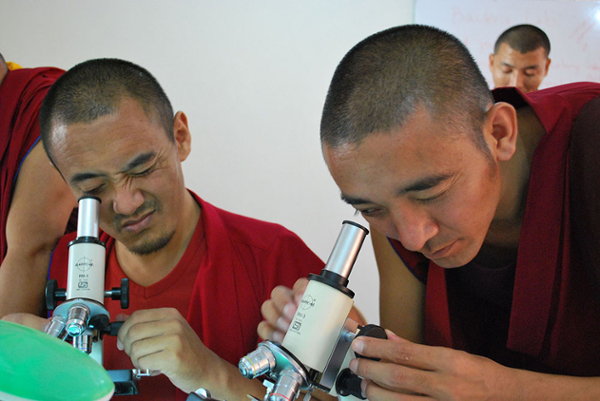Science, Ethics, and Society Initiative
As an exciting collaborative venture between the Ethics Center and the Program in Science and Society, the goal of the Science, Ethics, and Society Initiative is to capture and focus the growing interest and energy among students and the greater community with regard to issues in scientific development, including the impact of modern genetic technology on health and food; the role of society, religion, politics, and economics in science; and questions of environmental sustainability.
For more information, contact the program's director, Arri Eisen.
The Emory-Tibet Science Initiative (ETSI)
The Center for Ethics is enjoys close ties to ETSI, with Arri Eisen a lead participant for over a decade, as well as several Center for Ethics faculty fellows and alumni teaching and contributing to the initiative. The program is an impactful Emory legacy, an ongoing collaboration with the Dalai Lama and his Tibetan Buddhist monastic institutions. For nearly a decade-and-a-half, Emory professors have taught philosophy of science, biology, neuroscience, and physics to thousands of monks and nuns in India. Over time, faculty from universities all over the world joined the project and today more than 35 monks and nuns have studied at Emory and returned to India to become teachers themselves.
Strikingly, now, to become a Geshe (equivalent to a PhD) monk, our 6-year science curriculum is required— representing the first significant change in the Tibetan Buddhist monastic course of study in six centuries.
New Publication
A recent milestone, the special issue of Frontiers in Communication, “The Emory-Tibet Science Initiative, a Novel Journey in Cross-Cultural Science Education,” is now fully available on-line here. The issue beautifully represents the ideas and energy of this unique project.
The special issue’s guest editors include three faculty with close ties to the Center: Joel Zivot (MAB alum), Gillian Hue (AJOB Neuroethics editor and current Sr. Faculty Fellow), and Arri Eisen (CFE core faculty).
This special issue features 67 authors— monks, nuns, translators, and professors (philosophers, physicists, neuroscientists, and biologists) from 22 colleges and universities— ranging from Emory to Agnes Scott to Cal Tech, and from the University of Nebraska, to Elon, Northwestern, Georgia Gwinnett, and Penn State. The articles explore diverse aspects of ETSI— research on how monastics learn science, how they experience depression; perspectives on the role of translation in ETSI and education, on how the ETSI experience enriches teaching and scientific research in innumerable and surprising ways.
Perhaps the epitome of the issue, and the project itself, are three essays on science and Buddhism by monks who are ETSI students.
Visit the ETSI site for more information about the program.



